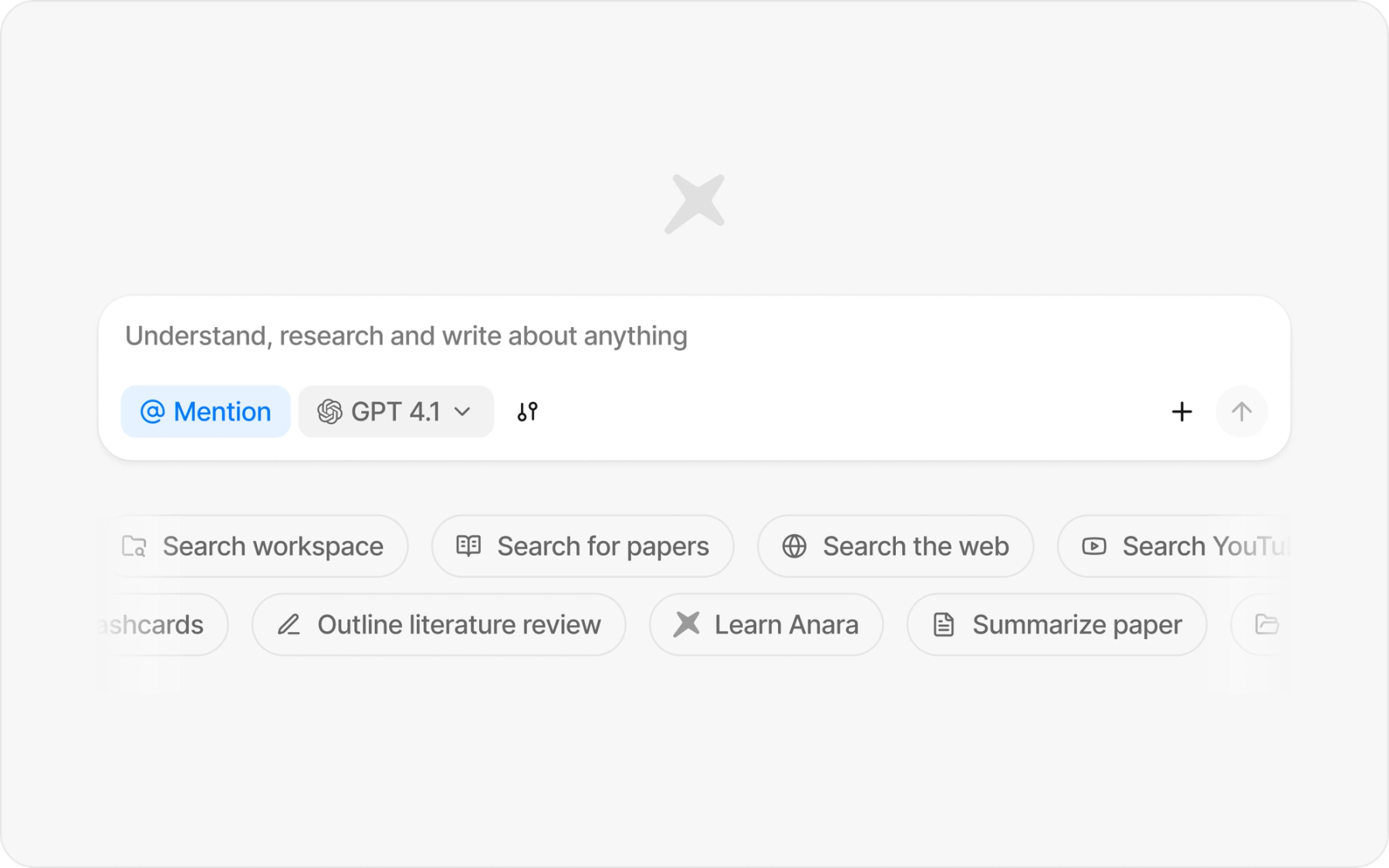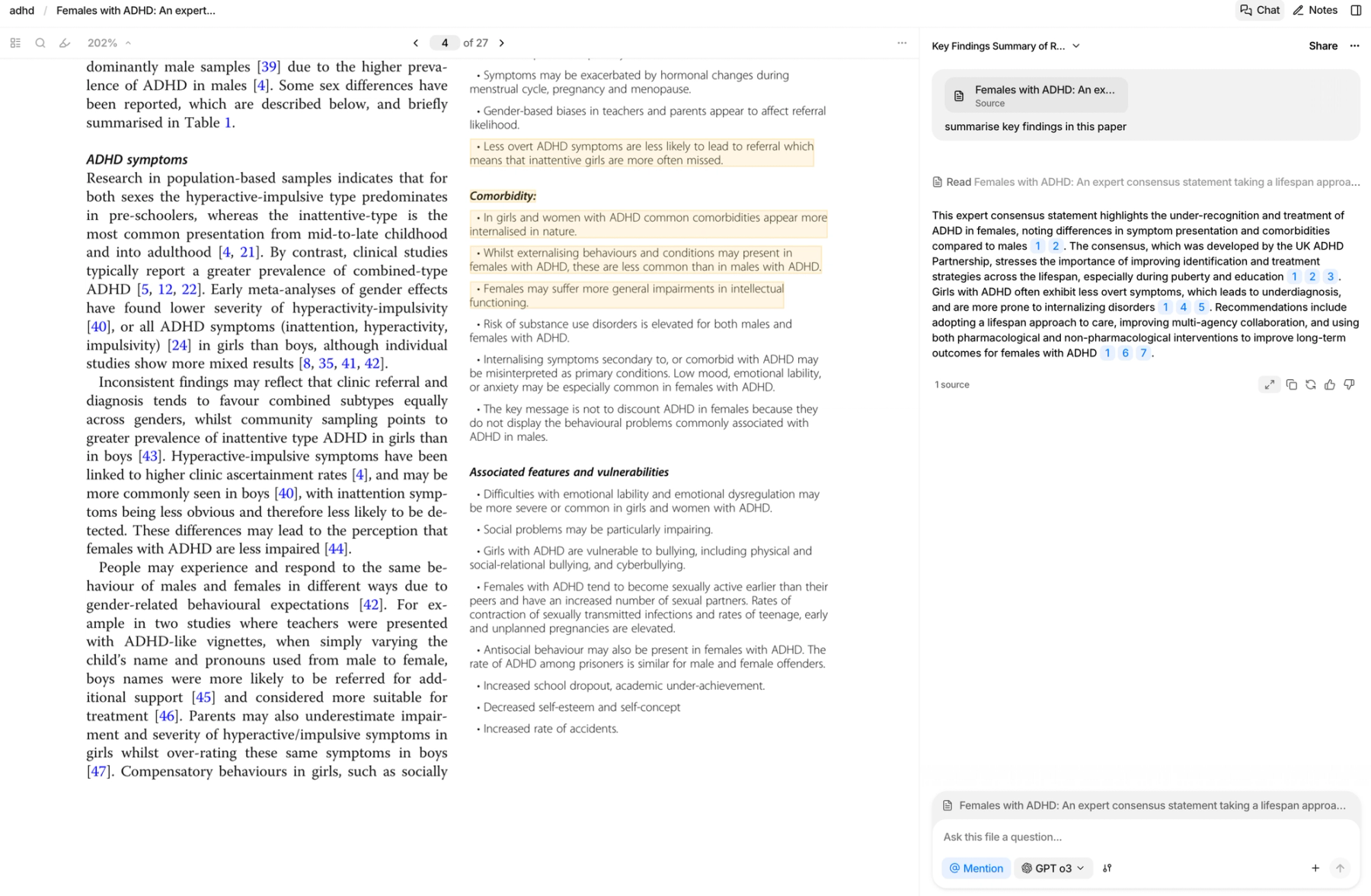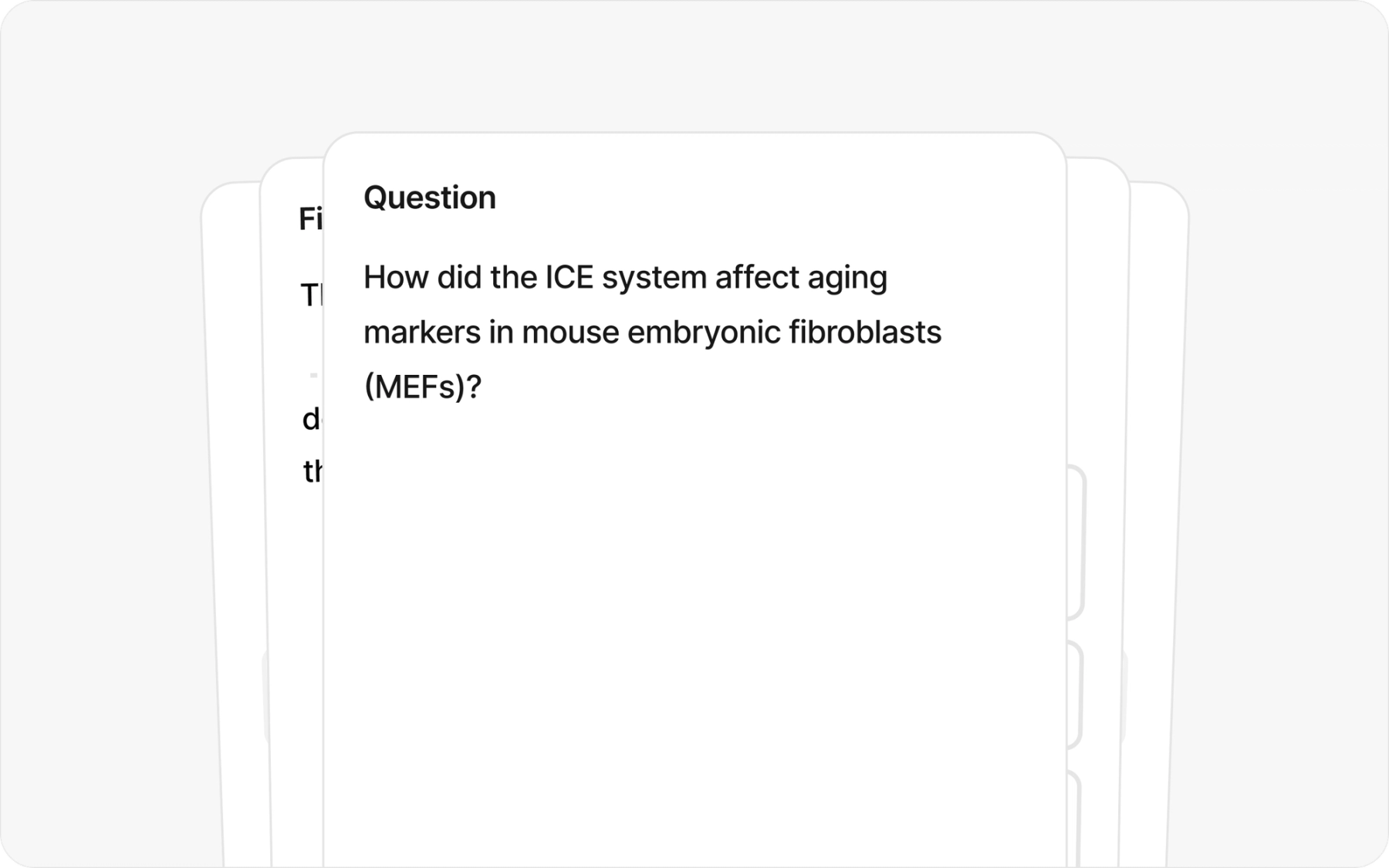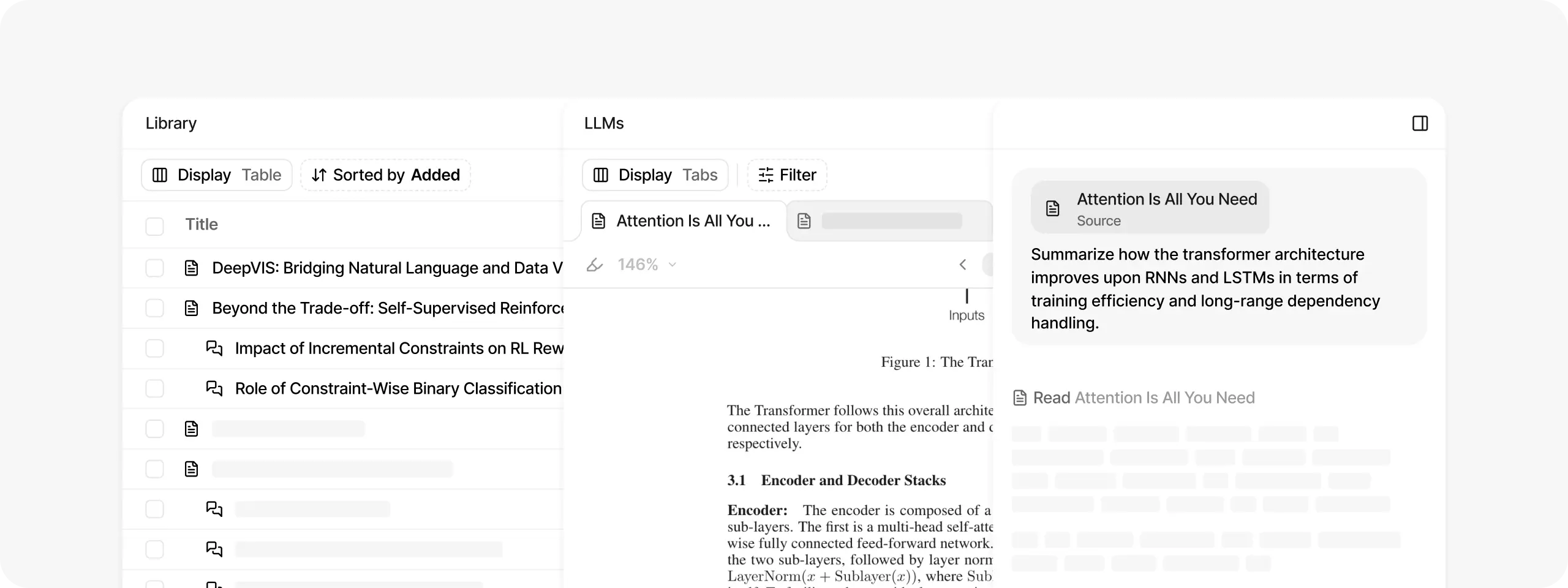Anara vs ChatGPT: What is the difference?
The main difference between Anara and ChatGPT is that Anara provides specialized research agents designed for academic workflows, while ChatGPT offers general-purpose assistance without research-specific capabilities.
Anara's agents can access your curated research library, academic databases (PubMed, arXiv, JSTOR), and web sources with full verification features, while ChatGPT relies on general knowledge without source verification or academic database access.
How does Anara 2.0 work?
Researchers deploy specialized agents for different research tasks:
- @SearchPapers discovers literature from academic databases
- @Research synthesizes insights across multiple sources (your curated research collection and the web)
- @CompleteForm automates systematic data extraction
- @SearchWorkspace finds information in your uploaded materials
You can also upload papers, PDFs, videos, and multimedia content to build a searchable research library that agents can analyze alongside external sources.

Why Anara outperforms ChatGPT for academic research and writing
1. Research-specific agent system
Conduct comprehensive literature synthesis, find research gaps, and access academic databases. Use @CompleteForm to automate systematic reviews, and @CreateCitation to generate references. ChatGPT has no specialized research capabilities; it's a general assistant trying to handle specialized academic tasks.
2. Multi-source verification
Every response from Anara links directly to specific passages in source documents, whether from your library, academic databases, or web sources. ChatGPT frequently fabricates citations and cannot provide verifiable source links, making it unreliable for academic work. No more hallucinated sources.

2. Academic database integration
@SearchPapers accesses papers collections from PubMed, arXiv, and JSTOR directly within your research workflow. ChatGPT has no database access and cannot discover current literature, limiting it to training knowledge.
Ask questions like "What methodologies have been used to study X across all my papers?" and get answers drawn from your research library and/or academic papers databases.
3. Systematic research automation
Unlike other AI research tools, Anara's @CompleteForm takes your systematic review templates and automatically extracts structured data across literature collections. ChatGPT cannot handle systematic review workflows or template-based data extraction that rigorous research demands.
4. Persistent research memory
@SearchWorkspace finds information across all your chats, documents, and agent interactions. Build knowledge systematically across projects with searchable research memory without losing research context.
5. Research collaboration and study tools
Share workspaces with teams members so they can simultaneously deploy agents, edit documents, add comments, and maintain unified research workflows with admin controls and granular permissions.
6. Study materials on autopilot
Unlike ChatGPT, Anara turn any chat with your readings into practice quizzes and flashcards. Upload lecture slides, get instant study materials. Perfect for exam prep.

When to use ChatGPT vs Anara
Use ChatGPT for:
- Grammar and language polishing
- General brainstorming and ideation
- Reformatting and restructuring existing text
- Translation and writing support
- Casual questions outside research contexts
Related: How to use ChatGPT for academic writing.
Use Anara for:
- Literature discovery and synthesis across academic databases
- Systematic review automation and data extraction
- AI literature reviews and finding research gaps
- Building and analyzing research libraries
- Academic collaboration and team research projects
- Verified AI citation generation and reference management
- Study material creation from research content
Support your academic writing with credible, sourced references
Switch to Anara nowReal impact: How researchers use Anara
A medical rehabilitation researcher focusing on cancer navigation in Africa shared their experience:
Within just four or five days, I was able to complete writing that would normally have overwhelmed me and caused significant delays. I can copy links from Google Scholar, import papers directly into Anara, and ask targeted questions like 'What are the functions of cancer AI programs in Africa?' without reading entire papers.
The key ChatGPT vs Anara difference: instead of starting with general knowledge and hoping for relevant information, this researcher built a focused library of domain-specific materials and had AI help navigate that curated knowledge base.
Simply put, Anara is an AI like ChatGPT for research.
